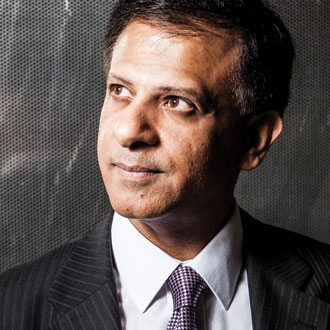The GPC chair has told Pulse that legal advice and feedback from GPs contributed towards it dropping plans to ballot the profession on industrial action.
Dr Chaand Nagpaul said that the BMA took legal advice on its options for taking industrial action, or submitting undated resignations, following a vote at the LMCs Conference in May.
However, he said that the legal advice had thrown up a number of complexities in submitting undated resignations, while other forms of action – such as non-engagement with the CQC – were illegal.
Dr Nagpaul added that the GPC had ‘considerable’ dialogue with NHS England around implementing the GP Forward View and the GPC’s recommendations in its Urgent Prescription for General Practice.
A motion at the LMCs Conference in May said that the GPC should ballot the profession unless NHS England accepted the Urgent Prescription recommendations within three months to address the increasing workload of GPs.
But the GPC announced yesterday that it will not be going ahead with a ballot, after NHS England agreed to negotiate on the recommendations in the Urgent Prescription, including longer appointment times, stopping all unfunded work and ending inappropriate workload demands on GPs that could be done by other parts of the NHS.
Speaking to Pulse today, Dr Nagpaul said: ‘The letter in a way it summarised NHS England’s position, but we have had considerable dialogue with NHS both in terms of implementing the GP Forward View and the Urgent Prescription for General Practice, which is our priority.’
This was the main reason the GPC took the decision, but there other reasons for not balloting on industrial action, Dr Nagpaul said.
He added: ‘There’s some very practical and financial reasons for why many GPs would not sign up to undated resignation. We’ve had considerable feedback from LMC meetings etc.
‘There are complexities around salaried GPs, complexities around the large numbers of locum doctors, complexities around partnership agreements and what would be allowed in terms of resignations.
‘We’ve actually looked into all of that – we’ve had legal advice – and therefore if that question ever is asked in the future it would have to be understood properly. It’s not quite as simple a question as what one had originally imagined.’
But Dr Jackie Applebee, chair of Tower Hamlets LMC, who proposed the motion in May, said: ‘I am concerned about the decision not to ballot. There was an overwhelming vote in favour of this at LMC conference. General practice is in extremis and this is widely acknowledged throughout the profession and the grassroots have by this vote showed the strength of feeling.
‘I understand that if NHS England has said that they accept all of the demands of the Urgent Prescription for General Practice that some might perceive this to be a breakthrough, however it will take more than words.’

















